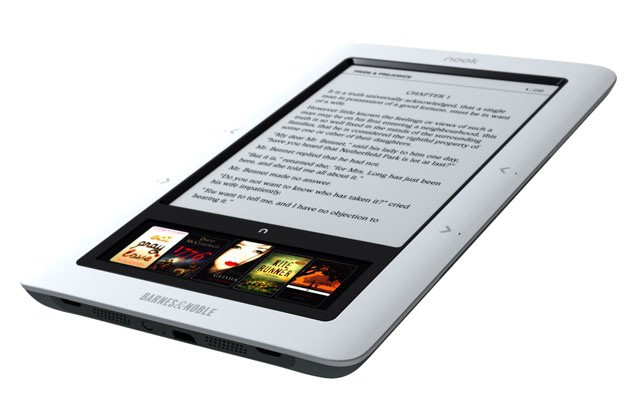Yesterday, in a somewhat surprising announcement, Microsoft and Barnes & Noble agreed to a deal that resolved their ongoing patent dispute, spun off the bookstore’s Nook business as a subsidiary into which Microsoft invested $300 million, and ensured that a Nook app will be available for Windows 8 when it launches later this year.
Although rumors have been floating around for months that Barnes & Noble was planning to spin of the Nook as a separate company or subsidiary, Microsoft’s involvement came as a surprise – one that raises interesting questions about what the two companies have in mind for their new joint business.
The most immediate benefit of the joint business is the end to a lawsuit that Microsoft had brought against Barnes & Noble over the low-end ereader/tablet. Microsoft has pursued licensing agreements from a number of Android manufacturers using patent claims, but Barnes & Noble resisted settling with the company over the Nook Color and Nook Tablet, both of which run a customized version of Android – as does the Kindle Fire.
A benefit for Microsoft is that the move ensures a Nook app for Windows 8 tablets and, presumably, for lower cost ARM-based Windows RT devices. This actually seems like a minor point and one that didn’t warrant a significant investment to ensure. A Nook app is already available for Windows PCs and it’s hard to imagine Barnes & Noble wouldn’t have updated it for Windows 8. On the other hand, to date there is no Nook app for Windows Phone – though after this news, I’m sure one will join the Nook apps for iPhone/iPod touch, iPad, and Android.
All of this implies that Microsoft’s investment, which gives the company a 17.6% stake in the new business, was made with other strategic goals in mind.
One idea that jumps to mind is a migration away from Android as the Nook’s underlying platform. Microsoft could contribute any one of its platforms as a basis for future Nook devices – Windows RT and Windows Phone would both be good candidates. The move would also free the new company from its reliance on Google and Android.
This could give Microsoft a major entry point into the low-end tablet/ereader space. To date, the company hasn’t actively addressed that market and doesn’t appear to be planning to do so with Windows 8. It future Nooks move to a Windows underpinning, it could help differentiate them from the Kindle Fire and future Amazon tablets. The move could even be an attempt to undercut the iPad with a low-cost tablet.
A move like that doesn’t just get Microsoft in the door for that market, it also gives the company some level of access to existing Nook apps and developers. It’s conceivable that Microsoft could boost its selection of Metro apps for Windows 8, Windows RT, and even Windows Phone by porting existing Nook apps. If the companies align their developer tools, they could offer developers a easy to create apps for both the Nook and Microsoft’s various Metro-based platforms in a streamlined manner.
A flip side of that is that the Nook gains access to Windows developers or even Microsoft’s internal development teams, which could offer the Nook an array of key apps like Office. Such a move could position the Nook platform for business use but at a much lower price point than the iPad or other full featured tablets.
However, this new company develops, it could be a game changer in the low-cost tablet and ereader markets over the next several months.


